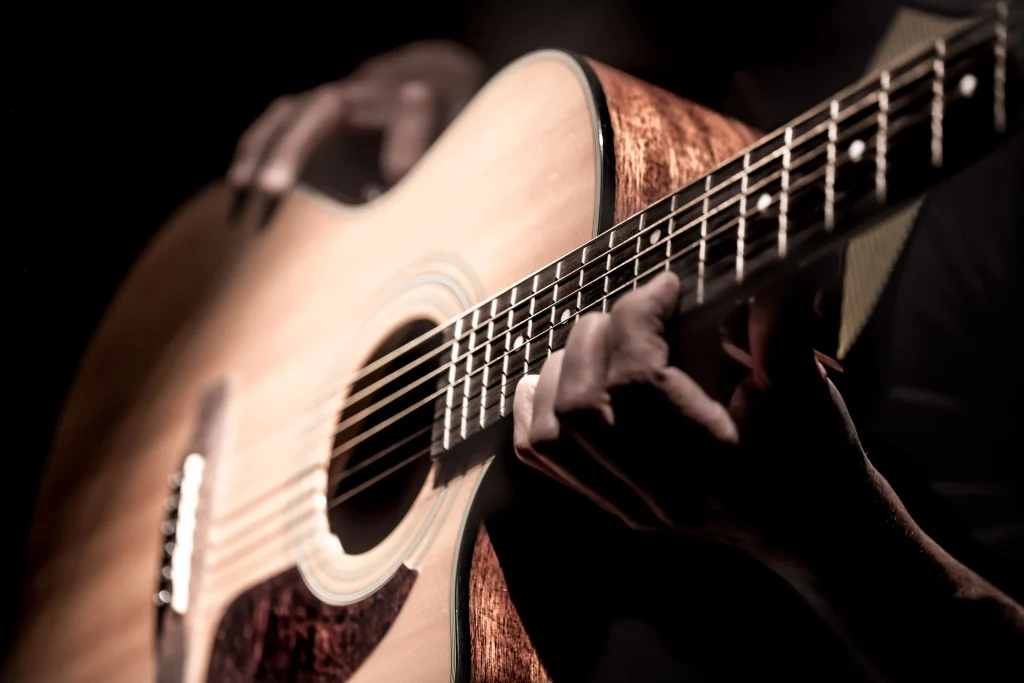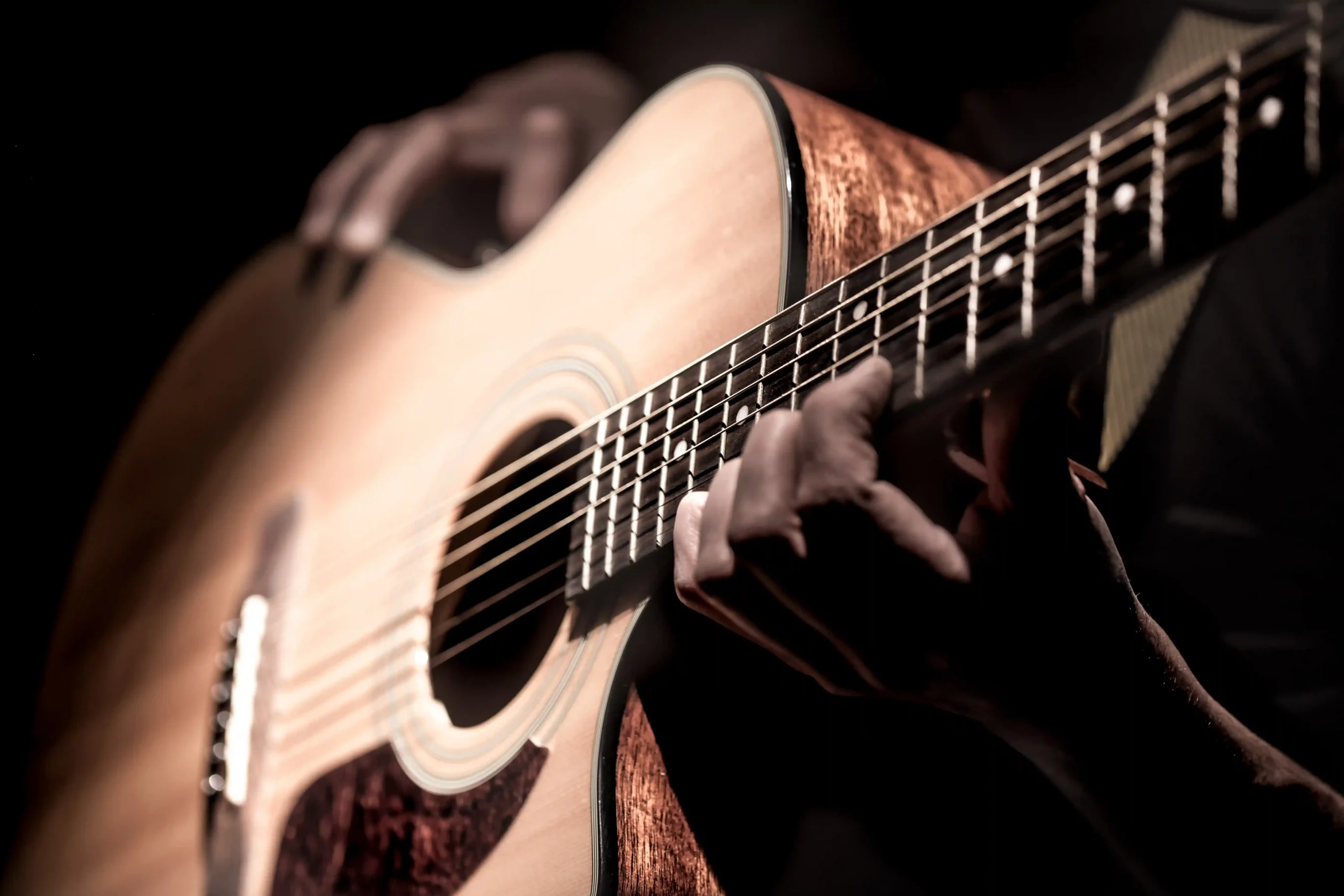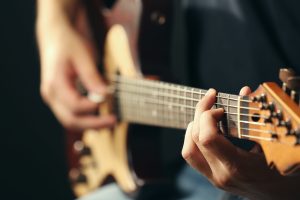At Performing Arts Music in Depew, we celebrate the rich heritage of musical instruments, and the guitar holds a special place in the world of music. With its timeless appeal and versatility, the guitar has been integral to various genres, cultures, and eras. Here’s an engaging look at the history of this iconic instrument and its profound impact on musical expression.

The Origins of the Guitar
The guitar we recognize today has a lineage dating back thousands of years. The earliest stringed instruments resembling the guitar were crafted around 3,000 BCE in Mesopotamia, where lutes and harps emerged. Fast forward to ancient Persia and Egypt, and variations of plucked instruments, like the oud, began to take shape.
By the Middle Ages, guitars of sorts became more recognizable in Europe, with their flat wooden bodies and gut strings. The “vihuela,” a 15th-century Spanish instrument, is often considered an ancestor of the modern guitar, blending influences from the lute and other regional stringed instruments.
The Evolution of Guitar Design
The 17th century brought major changes as the Baroque guitar replaced the earlier Renaissance models. Typically featuring five pairs of strings and ornate design elements, this version cemented the instrument’s role in folk and courtly music.
However, the turning point came in the 19th century, when Spanish luthier Antonio Torres revolutionized guitar construction. His innovations—such as the fan bracing system and larger body size—greatly enhanced the guitar’s volume and tonal quality, creating the blueprint for the classical guitar we know today.
Fast forward to the 20th century, and the guitar became a global sensation. Electric guitar pioneers like Les Paul and Leo Fender amplified its presence—literally. This invention transformed the guitar’s role, leading to its central place in modern music genres like rock and blues.
The Guitar’s Cultural Significance
From flamenco to jazz, rock ‘n’ roll to pop, the guitar has crossed cultural boundaries to become a universal symbol of musical storytelling. Its versatility allows it to adapt to genres ranging from classical to heavy metal. Think of legends like Andrés Segovia, who elevated classical guitar performance, or Jimi Hendrix, whose electric guitar mastery redefined what was possible in rock music.
The guitar doesn’t just provide background melodies; it serves as a tool of personal expression. Its portability and accessibility have made it a favorite among songwriters and performers worldwide.
The Guitar in the World of Music Education
At Performing Arts Music in Depew, we understand the unique bond between musicians and their guitars. That’s why we’re committed to fostering a deep appreciation for the instrument through music education. Whether you’re just starting your musical journey or refining your skills, our expert instructors can help you unlock the guitar’s full potential.
Experience the Magic of the Guitar
The guitar’s history is a testament to its enduring appeal and adaptability. From ancient times to today, it has inspired countless musicians and listeners alike. At Performing Arts Music, we aim to nurture this tradition by helping students discover and develop their passion for the guitar.
Stop by our Depew location to learn more about our guitar lessons and how we can help you become part of this rich legacy. Whether you’re strumming your first chords or mastering solos, the guitar has a story to tell—and so do you.




